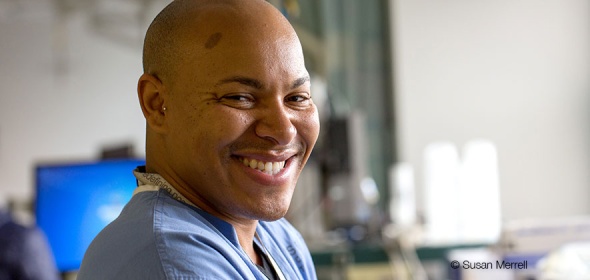by Healthforce Center Senior Research Analyst Lisel Blash, MPA
Jeannine had been working as a medical assistant (MA) for 20 years when her clinic recruited her to take part in a “senior medical home” for frail elders. Along with other seasoned MAs from her clinic, she attended classes in geriatrics and motivational interviewing skills. She and other MAs were deployed to help older adults stay well and in their homes.
Driving rural back roads, the MAs met with patients in their homes and performed limited medication reconciliation and risk assessments. They worked as a team with their providers, a nutritionist and a social worker to develop ongoing care for their panel. One of the MAs was promoted to a senior medical home coordinator; others transitioned full time to health coaching positions.
Despite the additional responsibility, Jeannine noted, “It doesn’t feel busier; it feels more rewarding. I enjoy my job better; I like getting more involved with the patient. You get tired of just taking temperatures and doing blood pressure.”
This story is typical of many we encountered in our nationwide study of MAs in new roles at innovative primary care practices. Typically, a primary care clinic needed to change its model of care to address an aging population, a rise in chronic disease, or a changing patient demographic. Unable to afford enough physicians and nurses to carry out all of the day-to-day work required to address the ongoing needs of its patient population, or unable to communicate well with a new patient demographic, they turned to their front line staff to fill in the gaps. MAs took on roles like patient navigator, dual role interpreter, community health worker, health coach and panel manager along with their MA role or rotated through different roles and tasks as needed. MA roles were not the only thing that changed: provider and nurse roles had to change, and often additional staff like social workers and behavior health specialists became a part of the team.
As one physician commented: “Most docs are working too hard and know that other team members could be doing much of the important work that doesn’t require a physician’s skills. They are ready for someone to take that work off their plate.”
There were challenges—change did not fit everyone and some people left. As one MA noted, MAs with a task-based orientation did not adjust well to a role requiring more relational and critical thinking skills. Providers who could not delegate or nurses who preferred hands-on care over population management responsibilities also found difficulty adjusting. However, those who stayed often found new meaning in their work, what Sinsky et al like to call "Joy in Practice." Payoffs included decreased physician burnout, greater patient satisfaction, improved patient outcomes, either increased revenue or decreased costs and greater staff engagement. Some clinics went a step further, providing their MA staff with career advancement and educational opportunities to reward achievement and enhance retention.
The site visits for this study, funded by the Hitachi Foundation, were exciting forays into a world of promise. The Affordable Care Act, with its emphasis on patient-centered care, new practice models and value-based payment, had just passed—inspiring many of these organizations to innovate, although some had started prior to ACA implementation.
The Hitachi Foundation later used our findings to start the Care Team Redesign Initiative (CTRI), which sponsored four practice sites to replicate the best elements of these new models. The goal of this initiative was to demonstrate the business case for training and empowering frontline health care workers within primary care teams. At the final CTRI meeting on November 9, 2016, participants were left wondering about the future of their models if the ACA were to be repealed. One practitioner commented, “Whatever happens, we know we are going in the right direction because this is where healthcare is going; we are doing the right thing for healthcare and for our patients.”
About Lisel: Lisel Blash, MPA, is a senior research analyst at Healthforce Center who focuses on innovative and emerging models of care for frontline health care workers.
